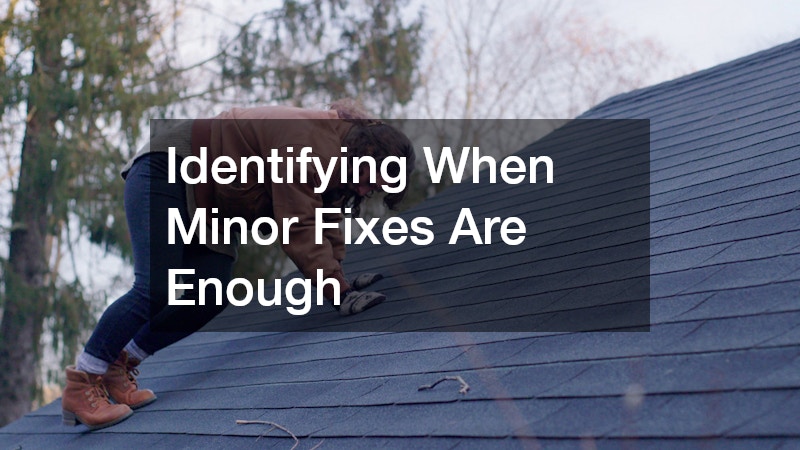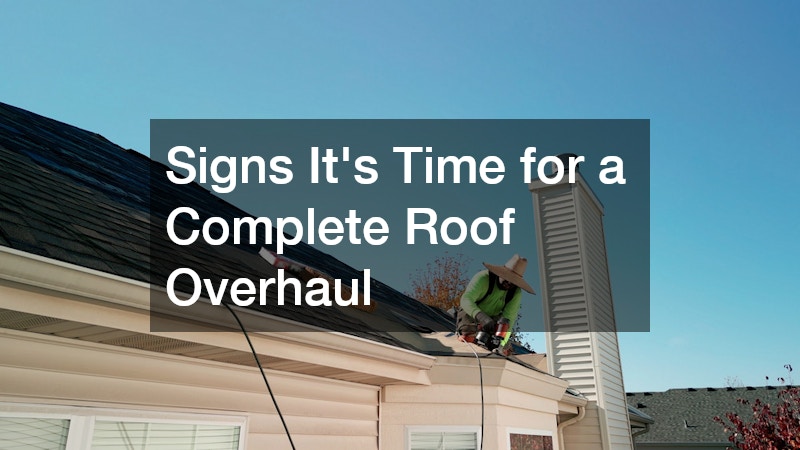Choosing the right roofing solution for your home can feel overwhelming, especially when faced with so many materials, styles, and repair options. Your roof is one of the most critical components of your house, protecting you and your family from the elements year-round. It also plays a major role in your home’s energy efficiency, curb appeal, and overall value. When considering roofing options, homeowners often weigh whether to repair minor issues, replace sections, or opt for a full replacement. Each choice has unique benefits depending on the age of the roof, the extent of damage, and your long-term plans for your home.
Residential roofing options today range from traditional asphalt shingles to wood shakes, clay tiles, slate, and modern metal roofs. The decision isn’t just about aesthetics; it also involves evaluating durability, maintenance needs, cost, and how well the material suits your local climate. For example, some roofs are better equipped to withstand heavy snowfall or strong winds, while others may offer better resistance to heat or hail damage.
When facing roofing issues, understanding the full range of options helps you make informed decisions that protect your investment and keep your home safe. You might consider patch repairs, partial replacements, or a total roof replacement depending on the situation. Sometimes a minor repair can extend the life of your roof by a few years, but at other times, more extensive measures are necessary to prevent leaks, structural damage, and costly problems down the line.
Your roof’s condition is more than skin deep. It’s vital to assess the underlying structures like the decking, flashing, and insulation during inspections. Professional guidance can help you identify the most cost-effective and long-lasting solutions. By exploring the various options thoroughly, you can ensure your home remains comfortable, secure, and attractive for years to come.
Identifying When Minor Fixes Are Enough

Not every roofing problem requires a roof replacement. Often, local roof repair is sufficient to address issues like missing shingles, small leaks, or minor damage from storms. These fixes can be a quick and affordable way to maintain your roof’s integrity and extend its lifespan.
Minor repairs are typically appropriate when damage is localized and the overall roof is still in good shape. For example, if a few shingles have blown off in a storm or if you notice small patches of granule loss on asphalt shingles, a skilled contractor can replace or patch these areas without the need for a full roof overhaul. Likewise, sealing small leaks or replacing flashing around chimneys or vents often prevents water intrusion without significant expense.
However, it’s important to regularly inspect your roof for signs that repairs are becoming frequent or ineffective. If you find yourself patching leaks multiple times a year or notice worsening wear, it may be time to reconsider your approach. Minor fixes work best as a preventative or temporary measure, not a permanent solution for a roof nearing the end of its service life.
Local roof repair is most effective when the underlying roof structure remains sound. If moisture has penetrated decking or caused rot, patching won’t solve the root problem. In such cases, addressing the full scope of damage may require a total roof replacement to avoid escalating issues.
Choosing the Right Expert for Your Roofing Needs
Hiring a qualified roofing contractor is essential to ensuring quality workmanship and a lasting result. A professional roofing contractor brings experience, knowledge of materials, and adherence to local building codes that can save you time, money, and frustration.
When selecting a roofing expert, start by checking credentials, licenses, and insurance coverage. Reputable contractors should be licensed to work in your area and carry both liability and worker’s compensation insurance. This protects you from liability if accidents occur during the job.
Look for contractors with strong local reputations and positive reviews. Personal referrals, online testimonials, and ratings with organizations like the Better Business Bureau provide insight into their reliability and professionalism. A trustworthy roofing contractor will provide clear, written estimates and contracts detailing the scope of work, materials, timelines, and payment terms.
An experienced contractor can guide you through the decision between repair and total roof replacement, helping you understand the pros and cons of each option based on your roof’s condition and budget. They should also be able to recommend the best materials and installation methods suited for your climate.
Clear communication is key. Your contractor should answer your questions thoroughly and keep you informed throughout the process. Avoid anyone who pressures you into immediate decisions or demands large upfront payments. A reputable roofer stands behind their work with warranties and will address any concerns promptly.
What to Expect From Professional Fixing Services
Roof repair service professionals provide a variety of solutions depending on your roof’s condition. When you engage a trusted team, expect a thorough inspection to assess damage, including hard-to-see areas like flashing, gutters, and attic ventilation.
Repairs can include replacing damaged shingles, patching leaks, resealing joints, and cleaning debris. A professional repair service also addresses underlying causes such as clogged gutters or poor drainage that might contribute to roof problems.
The repair process generally starts with identifying the source of damage, then carefully removing affected materials, replacing or sealing them, and restoring protective layers. Quality workmanship means paying attention to detail so repairs blend seamlessly with the existing roof and prevent future issues.
Safety is paramount, so experienced roofers use proper equipment and follow OSHA guidelines. They also respect your property, protecting landscaping and cleaning up debris thoroughly.
In some cases, roof repair services may reveal that damage is more extensive than initially thought. If the repairs become frequent or the roof’s age is advanced, the team might recommend a complete roof replacement for long-term peace of mind.
How to Find a Trustworthy Company for Your Roof

Finding a reliable roofing company requires research and due diligence. Start by gathering several quotes from companies with solid reputations and experience in residential roofing.
Verify that the roofing company is licensed and insured in your state, and confirm that their employees are trained professionals. Don’t hesitate to ask for references from recent clients to hear firsthand about their experience.
Check the company’s history—how long they have been in business and whether they specialize in the type of roofing material you need. A company with extensive experience in metal roofs, for example, will be better equipped to handle that particular job.
Review warranties offered by the roofing company. The best companies stand behind their work with both manufacturer and workmanship warranties that provide added protection.
Avoid companies that offer unusually low bids or push for immediate payment before work begins. Transparency in pricing and clear contracts are signs of a trustworthy company.
Lastly, good communication and responsiveness throughout the estimate and consultation process are positive indicators. Choose a roofing company that values your input, addresses your concerns, and provides a clear plan for your roof project.
Key Factors That Affect Roof Longevity
Several factors influence how long your roof will last before needing repair or total roof replacement. Understanding these elements helps homeowners maintain their roofs proactively.
The roofing material itself plays a significant role. Asphalt shingles typically last 20 to 30 years, while metal roofs can endure 40 to 70 years with proper care. Tile and slate roofs often exceed 50 years but come with higher upfront costs.
Climate impacts roof longevity as well. Areas with heavy rain, snow, or extreme heat may experience faster wear. UV rays degrade shingles over time, and freeze-thaw cycles can cause cracking.
Proper installation is crucial. A poorly installed roof can fail prematurely regardless of the materials used. That’s why choosing an experienced roofing contractor is so important.
Maintenance also affects lifespan. Keeping gutters clear, removing debris, inspecting for damage after storms, and addressing small issues promptly can extend roof life. Ventilation and attic insulation prevent moisture buildup, which can rot decking and warp shingles.
Structural factors matter too. Homes with complex rooflines or those shaded by large trees may face increased risk from debris or ice dams.
By considering these key factors, you can better anticipate when repairs are needed and when investing in a total roof replacement is the most cost-effective approach.
Comparing Costs Between Repair and Replacement
One of the most common questions homeowners face is whether to invest in roof repairs or go straight to a total roof replacement. Both options have financial considerations worth understanding.
Roofing services like repairs are typically less expensive upfront, especially when damage is limited. Fixing leaks, replacing a handful of shingles, or patching flashing might cost a few hundred to a few thousand dollars, depending on the job.
However, repeated repairs over time can add up. If your roof is old or showing widespread wear, frequent fixes might become a financial drain without addressing underlying problems.
Total roof replacement requires a larger initial investment, ranging from several thousand to tens of thousands of dollars depending on the size of the home, materials chosen, and labor costs. While more costly at once, a full replacement can eliminate ongoing maintenance expenses and improve energy efficiency.
Consider also the added value a new roof brings to your home. It can increase resale value, improve curb appeal, and provide peace of mind for years.
In many cases, consulting with a roofing contractor helps you weigh the true costs, factoring in the age, damage extent, and your homeownership timeline to choose the smartest financial path.
Signs It’s Time for a Complete Roof Overhaul

Knowing when it’s time for a total roof replacement can save you from bigger headaches down the road. Certain signs indicate that minor repairs won’t suffice and a full replacement is necessary.
One major sign is widespread shingle damage—curling, cracking, or missing shingles across large areas. When the protective granule layer wears off, the shingles lose their waterproofing ability.
Leaks inside your home are a serious warning. Water stains, mold growth, or damp spots on ceilings and walls suggest roof failure.
If your roof is 20 years old or more and requires regular repairs, it’s likely time to consider total roof replacement. Age reduces effectiveness and the risk of hidden damage increases.
Sagging rooflines or structural deformities indicate potential decking or support damage, which repairs cannot fix.
Multiple layers of roofing can also be problematic. Building codes limit how many layers can be installed, and excessive layers may necessitate a full tear-off and replacement.
Ignoring these signs can lead to costly water damage, structural issues, and lower home value.
What to Look For When Hiring a Skilled Roofer
Hiring the right roofer is critical to a successful roofing project, whether it’s repairs or a total roof replacement. Look for someone who combines expertise with professionalism.
First, confirm the roofer has experience with the type of roofing material you want. Installation techniques vary significantly between asphalt shingles, metal roofs, and tiles.
Ask about their crew’s training and safety protocols. Skilled roofers work efficiently and safely, minimizing risks to themselves and your property.
Check for proper licensing and insurance. This protects you financially and legally if accidents or damage occur.
Request references and photos of past projects. A skilled roofer will have a portfolio showcasing quality work and satisfied clients.
Make sure they offer written estimates and clear contracts. Transparency about costs, timelines, and warranties avoids misunderstandings.
Good roofers communicate well, answer questions patiently, and stand behind their work with guarantees.
Advantages of Durable Metal Roofing Solutions

Metal roofs have gained popularity due to their durability, energy efficiency, and modern appearance. They offer several advantages over traditional roofing materials.
One key benefit is longevity. A metal roof can last 40 to 70 years or more, often outlasting asphalt shingles by decades.
They are highly resistant to extreme weather, including heavy rain, snow, hail, and high winds. Metal doesn’t crack, curl, or warp like some other materials.
Metal roofing is fire-resistant and requires minimal maintenance compared to other options.
Energy efficiency is another advantage. Metal roofs reflect solar radiant heat, reducing cooling costs during hot summers.
Installation can be quicker, especially with standing seam panels, which provide a sleek look with fewer seams vulnerable to leaks.
Although the upfront cost is higher, many homeowners view metal roofs as a long-term investment that can reduce energy bills and increase home value.
If you’re considering a complete roof replacement, metal roofing is worth exploring as a durable and eco-friendly alternative.
Deciding between roof repair and roof replacement is a significant choice that affects your home’s safety, value, and comfort. Throughout your homeownership journey, understanding when minor fixes are enough and when a full replacement is necessary can save you from costly damage and stress. Regular maintenance and inspections help extend your roof’s life, but aging roofs with widespread damage often require total roof replacement to ensure lasting protection.
Choosing the right roofing contractor is paramount. A knowledgeable and trustworthy professional guides you through material choices, assesses damage accurately and performs repairs or replacements with quality and care. Whether opting for a roof repair service or a complete overhaul, good communication and clear contracts protect your investment.
Financially, weighing the costs of ongoing repairs against the upfront expense of a roof replacement helps you make a sound decision. While repairs can address immediate problems, a full replacement eliminates persistent issues and adds lasting value to your home.
Keep an eye out for warning signs like widespread shingle damage, leaks, or sagging rooflines. These signals often indicate that repairs won’t be enough and a roof replacement is the best course of action.
Exploring durable roofing materials, such as metal roofs, can provide peace of mind with their extended lifespan and energy-saving benefits.
In the end, a complete roof replacement is a major project, but also a crucial investment in your home’s future. Making informed choices about your roof protects your family, enhances curb appeal, and increases property value for years to come. With the right expert guidance, quality materials, and timely action, you can ensure your roof remains a strong, reliable shield over your home.



